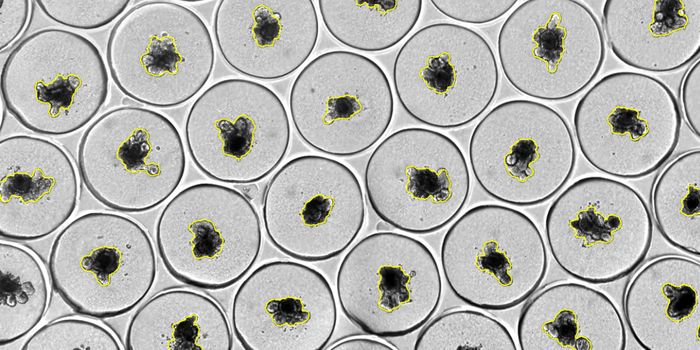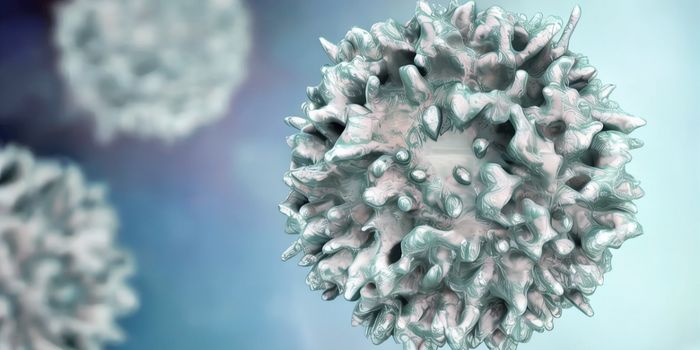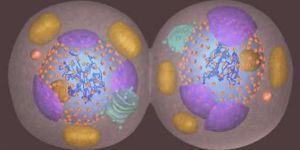Earth & The Environment
Did Early Animals Help Oxygenate the Ocean Depths?
MAR 20, 2014 12:00 AM PDT
Share
ctDNA shows promise as non-invasive cancer biomarker
 According to the American Cancer Society, cancer will occur in more than 1.6 million individuals this year in the United States alone. However, a clinically proven circulating biomarker that can help guide the management of cancer patients is available for only a minority of them-even in cases of widespread metastasis. In fact, the development of a non-invasive method for detecting and monitoring tumors is one of the major challenges facing oncology today. A recent study published in the journal Science Translational Medicine, provides strong evidence that circulating tumor DNA (ctDNA) may help meet that challenge.(1)
According to the American Cancer Society, cancer will occur in more than 1.6 million individuals this year in the United States alone. However, a clinically proven circulating biomarker that can help guide the management of cancer patients is available for only a minority of them-even in cases of widespread metastasis. In fact, the development of a non-invasive method for detecting and monitoring tumors is one of the major challenges facing oncology today. A recent study published in the journal Science Translational Medicine, provides strong evidence that circulating tumor DNA (ctDNA) may help meet that challenge.(1)The study, by Bettegowda et al, demonstrated that even early-stage tumors in many different organs shed ctDNA fragments into the bloodstream. Furthermore, these ctDNA fragments can be identified in a sample of the patient's blood and could potentially have broad application as a sensitive, specific, and non-invasive biomarker to screen for early-stage cancers, monitor responses to treatment, and provide insights into why some cancers are resistant to therapy.
To see how well ctDNA was able to detect tumors in patients with different types of cancers, the investigators used digital polymerase chain reaction (PCR) to analyze blood samples from 640 patients. They found that ctDNA was detectable in over 75% of patients with advanced pancreatic, ovarian, colorectal, bladder, gastroesophageal, breast, melanoma, hepatocellular, and head and neck cancers, but in less than half of the patients with primary brain, renal, prostate, or thyroid cancers. In patients with localized tumors, ctDNA was detected in 73% of patients with colorectal cancer, 57% of patients with gastroesophageal cancer, 48% of patients with pancreatic cancer, and 50% of patients with breast adenocarcinoma. ctDNA was often present in patients without detectable circulating tumor cells (CTCs), suggesting that these two biomarkers are distinct entities.
In a separate panel of 206 patients with metastatic colorectal cancers, the investigators studied the sensitivity of ctDNA for detection of clinically relevant KRAS mutations, which are involved in the development of many types of cancers. Their results showed that the sensitivity of ctDNA for these mutations was 87.2%, with a specificity of 99.2%.
The presence of ctDNA was also assessed to see if it could provide insights into the mechanisms that underlie resistance to epidermal growth factor receptor (EGFR) blockade. In 24 patients who objectively responded to therapy, but then relapsed, 96% developed one or more mutations in genes involved in the mitogen-activated protein kinase (MAPK) pathway. The MAPK pathway regulates gene expression and cell survival and may help cancer cells thrive.
According to the authors of the paper, "these studies provide a wealth of information
on the potential utility, as well as the limitations, of ctDNA measurements for the assessment of patients with various cancers." Further research is required to fully determine the clinical utility of ctDNA as a biomarker, but this study provides a solid foundation to build on.
REFERENCE
Bettegowda C, Sausen M, Leary RJ, et al. Detection of Circulating Tumor DNA in Early- and Late-Stage Human Malignancies. Sci. Transl. Med. 6, 224ra24 (2014).
You May Also Like
Loading Comments...








